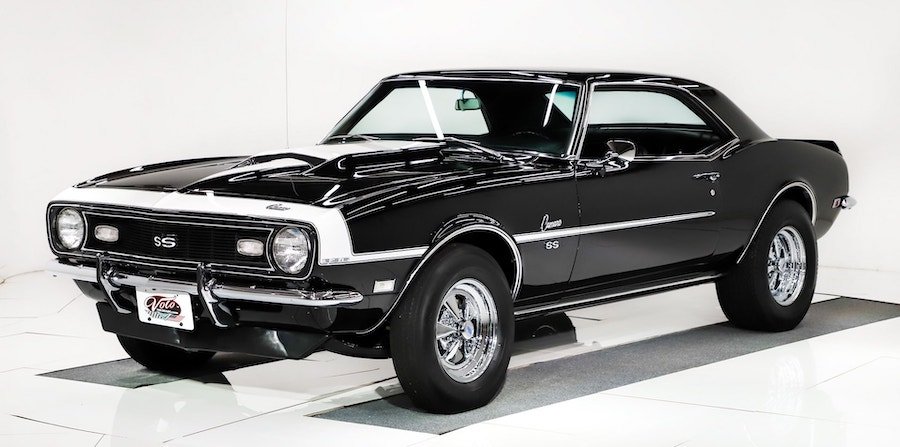Ultra-Rare 1968 Chevrolet Camaro 427 Motion Once Took a Bullet From the Police

Don Yenko is usually quoted as the man who prompted Chevrolet to willingly drop the L72 in the Camaro through the COPO program. His Yenko Chevrolet dealership ordered 201 cars. But as word got out, the COPO 427 also found its way into other dealerships, including Baldwin-Motion, Nickey, and Dana. However, these dealerships had been installing 427 mills in Camaros since 1967.
These rigs were commonly known as supercars and were usually ordered by drag racers. Nowadays, they're among the rarest and most desirable pony cars from the golden era. The black 1968 SS you see here, originally built by Motion Performance, is one of those rigs.
Created by Joel Rosen, Motion began producing beefed-up Chevys in 1966. Although not as intensely discussed as Yenko, Motion was the number two producer of specialty performance vehicles by 1968. It was second only to Shelby. In 1968, Motion Performance was upgrading five different Chevys, including the Corvette, Chevelle, Nova, and the Biscayne.
The exact number of Motion cars is unknown, but word has it that between 300 and 500 (in all sizes) were produced from 1967 to 1974. This 1968 Camaro, available via Volo Cars, is described as "one of the best-documented examples in existence." It also has a fabulous story to tell.
The vehicle was ordered by Barry Maskery, a GM employee who participated in the research and development of the company's Mark IV big-block V8 engine. Unable to buy a 427-powered Camaro from the factory, he ordered a car with the 396-cubic-inch (6.5-liter) L78 and took it to Motion Performance for the L72 upgrade.
Barry then took the muscle car drag racing and set a 10.45-second quarter-mile record (which is included with the car). He sold the car in the 1970s, and the second owner involved the Camaro in street racing. The story goes that he was racing a 1970 Plymouth Hemi Cuda one night when the police showed up and set a blockade. While the Cuda stopped, the Camaro drove past the blockade. The cops tried shooting the tires, and a bullet hit the car's quarter panel.
There's no info about the outcome of this misdemeanor, but the Motion-prepped car survived these intense years of racing. And thanks to a rotisserie restoration, it looks like it just left the Motion Performance shop over 50 years ago. Moreover, it still packs a correct 427-cubic-inch V8 engine.
Described as an "authentic, properly dated CE" unit, the mill features the original square port heads and matched GM aluminum intake, correct Holley dual feed carburetor and Motion valve covers. The makeover also included a few reproduction parts, but the powerplant looks authentic, even upon close inspection. The M22 four-speed manual is not numbers-matching, but it's correct and mates to a 12-bolt rear end with special-ordered 4.88 gears.
Offered with four binders of documentation, the Camaro also comes with GM of Canada paperwork, a letter from the original owner, and lots of restoration receipts and photos.
Unsurprisingly, this ultra-rare, museum-grade muscle car also comes with a hefty sticker. Appraised at $525,000, the Motion rig is offered at a whopping $499,998. It may seem like a lot, but a 1968 Motion car previously sold for $583,000 at public auction in 2023. Some Yenko Camaros also changed hands for over a half-million dollars in recent years.






Verwandte Nachrichten
